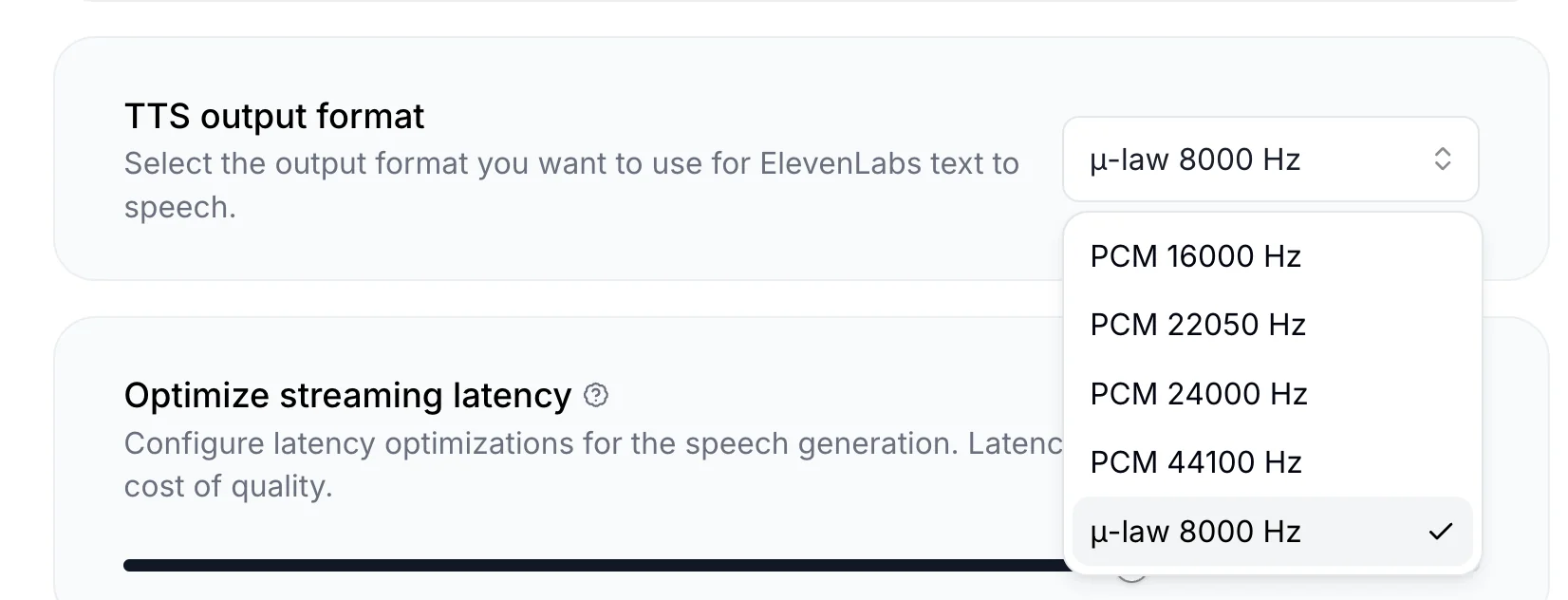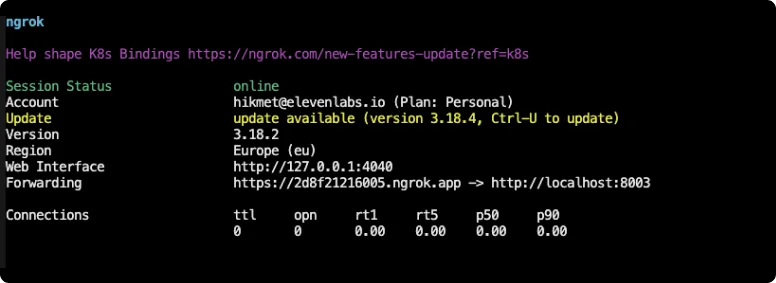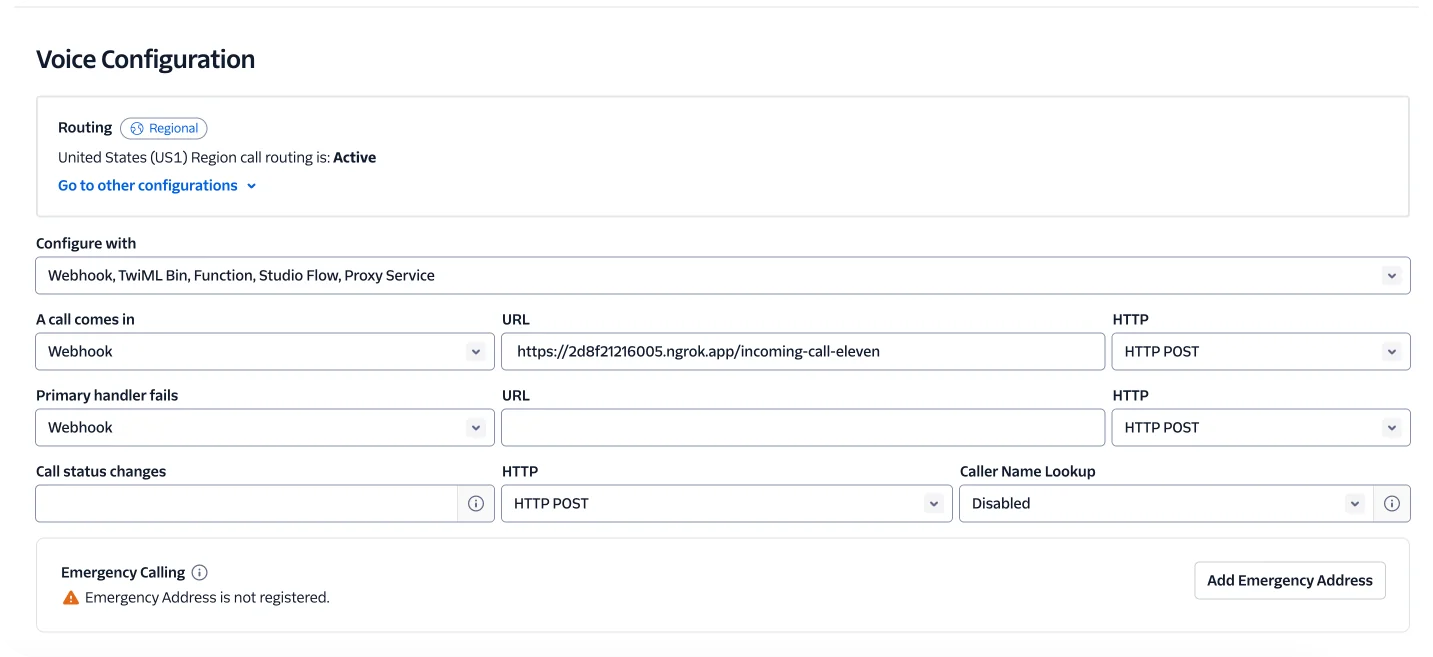What You’ll Need
- An ElevenLabs account
- A configured ElevenLabs Conversational Agent (create one here)
- A Twilio account with an active phone number
- Python 3.7+ or Node.js 16+
- ngrok for local development
Agent Configuration
Before integrating with Twilio, you’ll need to configure your agent to use the correct audio format supported by Twilio.1
Configure TTS Output
- Navigate to your agent settings
- Go to the Voice Section
- Select “μ-law 8000 Hz” from the dropdown

2
Set Input Format
- Navigate to your agent settings
- Go to the Advanced Section
- Select “μ-law 8000 Hz” for the input format

Implementation
- Javascript
- Python
Looking for a complete example? Check out this Javascript implementation on GitHub.
1
Initialize the Project
First, set up a new Node.js project:
2
Install dependencies
Next, install the required dependencies for the project.
3
Create the project files
Create a
.env & index.js file with the following code:4
Run the server
You can now run the server with the following command:If the server starts successfully, you should see the message
[Server] Listening on port 8000 (or the port you specified) in your terminal.Twilio Setup
1
Create a Public URL
Use ngrok to make your local server accessible:

2
Configure Twilio
- Go to the Twilio Console
- Navigate to
Phone Numbers→Manage→Active numbers - Select your phone number
- Under “Voice Configuration”, set the webhook for incoming calls to:
https://your-ngrok-url.ngrok.app/incoming-call-eleven - Set the HTTP method to POST

Testing
- Call your Twilio phone number.
- Start speaking - you’ll see the transcripts in the ElevenLabs console.
Troubleshooting
Connection Issues
Connection Issues
If the WebSocket connection fails:
- Verify your ngrok URL is correct in Twilio settings
- Check that your server is running and accessible
- Ensure your firewall isn’t blocking WebSocket connections
Audio Problems
Audio Problems
If there’s no audio output:
- Confirm your ElevenLabs API key is valid
- Verify the AGENT_ID is correct
- Check audio format settings match Twilio’s requirements (μ-law 8kHz)